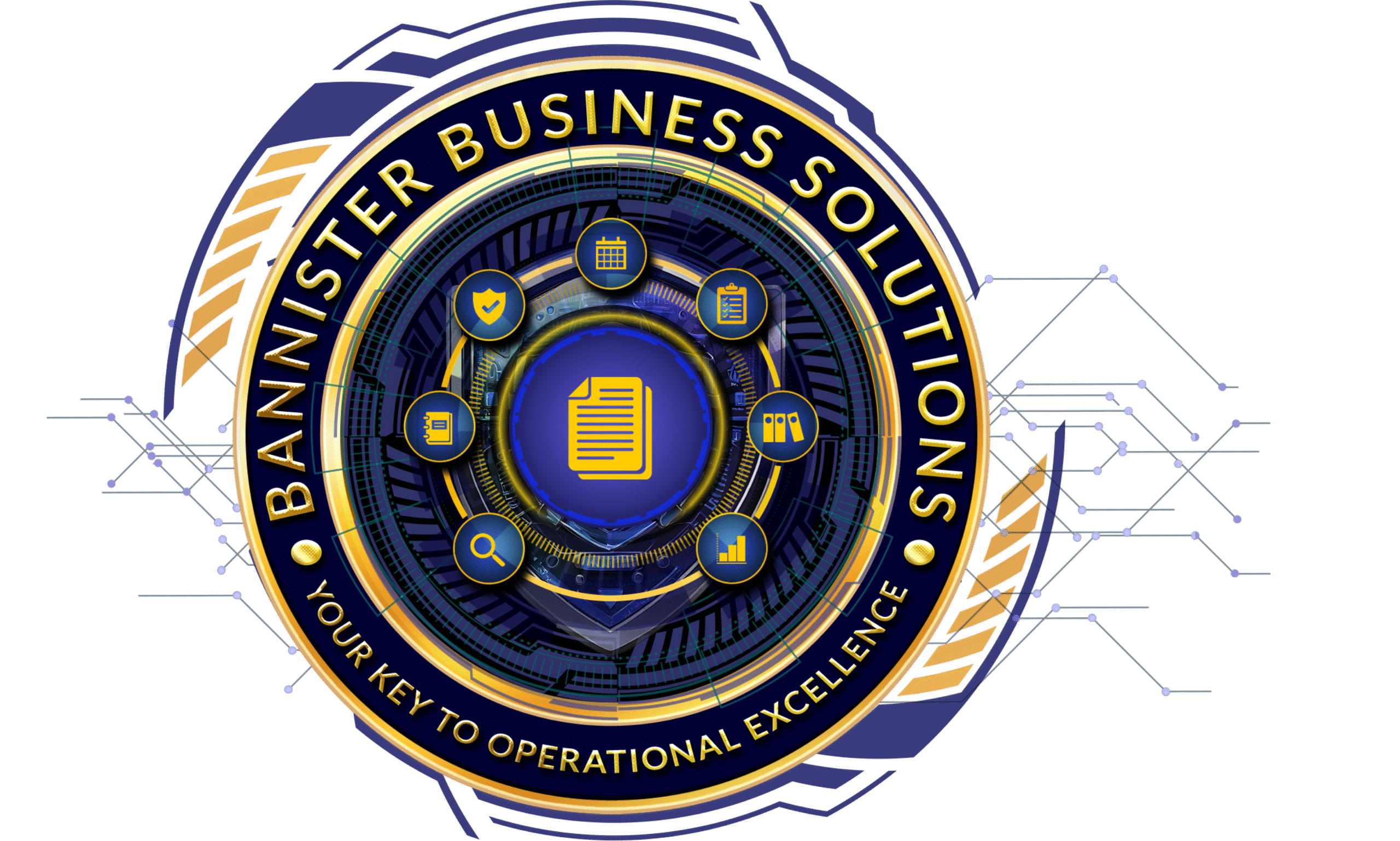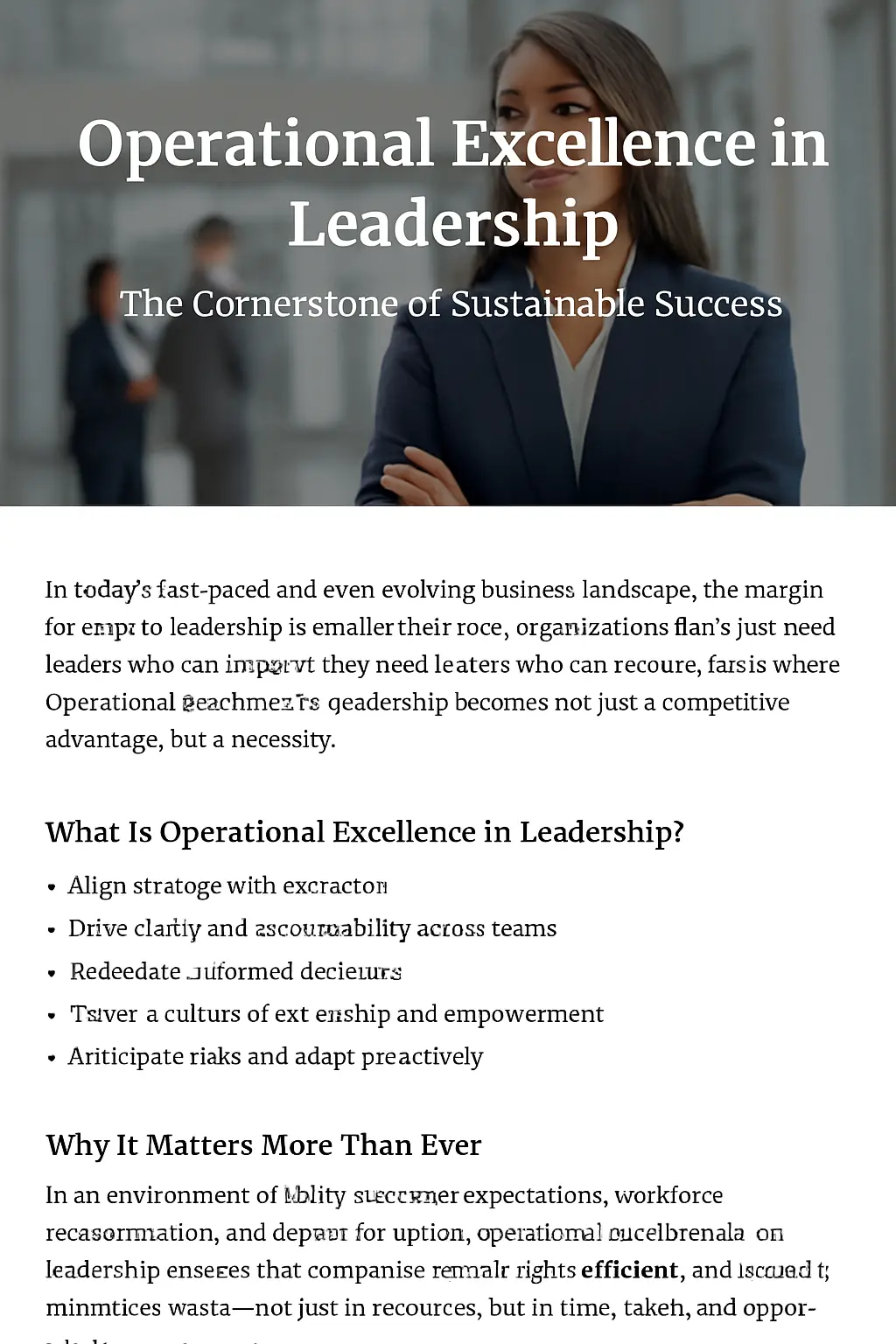In today’s fast-paced and ever-evolving business landscape, the margin for error in leadership is smaller than ever. Organizations don’t just need leaders who can inspire—they need leaders who can execute. This is where Operational Excellence in Leadership becomes not just a competitive advantage, but a necessity.
What Is Operational Excellence in Leadership?
Operational excellence is often associated with systems, processes, and efficiencies. However, when applied to leadership, it goes beyond logistics and data—it’s about creating a culture of high performance, continuous improvement, and strategic alignment across every level of the organization.
Operationally excellent leaders are those who:
- Align strategy with execution
- Drive clarity and accountability across teams
- Make data-informed decisions
- Foster a culture of ownership and empowerment
- Anticipate risks and adapt proactively
These leaders don’t just react to change—they anticipate it, navigate it, and often use it to their advantage.
Why It Matters More Than Ever
In an environment of rising customer expectations, workforce transformation, and digital disruption, operational excellence in leadership ensures that companies remain agile, efficient, and focused. It minimizes waste—not just in resources, but in time, talent, and opportunity.
Leaders who embody operational excellence don’t get lost in the weeds. Instead, they implement systems that streamline execution and empower others to lead with confidence.
Key Pillars of Operational Leadership Excellence
Clear Vision and Strategic Focus
Leaders must communicate a compelling vision and connect it to day-to-day operations. Everyone on the team should understand how their work contributes to larger business goals.
Accountability Systems
Effective leaders create structures that promote ownership. Accountability is not about micromanagement—it’s about clarity in roles, expectations, and outcomes.
Process Improvement Mindset
Great leaders embrace feedback loops and view setbacks as opportunities to optimize. They instill a culture where continuous improvement is celebrated and expected.
People-Centric Execution
Operational excellence is not achieved by process alone—it requires engaging people. Leaders who coach, mentor, and develop their teams are the ones who generate sustainable results.
Resilience and Adaptability
Whether navigating market disruptions or internal change, leaders with operational discipline remain steady. They balance long-term vision with short-term agility.
How Leaders Can Start Driving Operational Excellence
Audit your current leadership systems: Are you aligned across departments? Is everyone clear on their KPIs?
Develop your team’s operational capability: Empower others with training and tools that foster accountability and improvement.
Lead with transparency and metrics: Track what matters and share outcomes openly.
Invest in your own growth: Operational excellence begins with self-leadership—know your strengths, address your gaps, and stay open to change.
Final Thoughts
Operational excellence is not about perfection—it’s about intentional leadership that maximizes effectiveness and minimizes friction. It’s about driving results while cultivating a culture that thrives under pressure and change.
As a leader, when you model operational excellence, you don’t just deliver outcomes—you inspire others to do the same. And in that ripple effect, true transformation begins.

